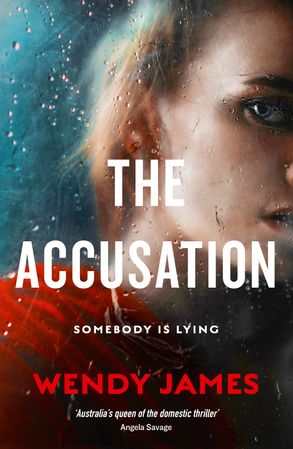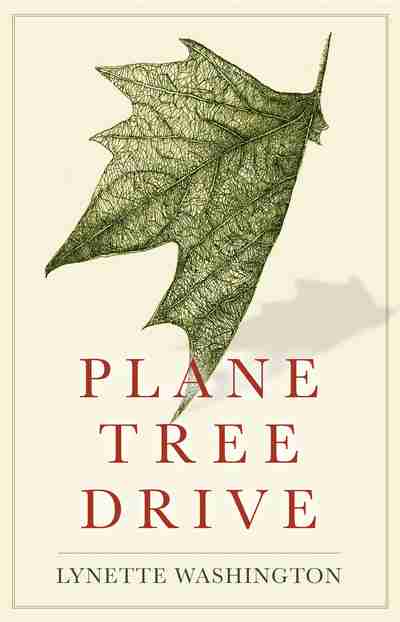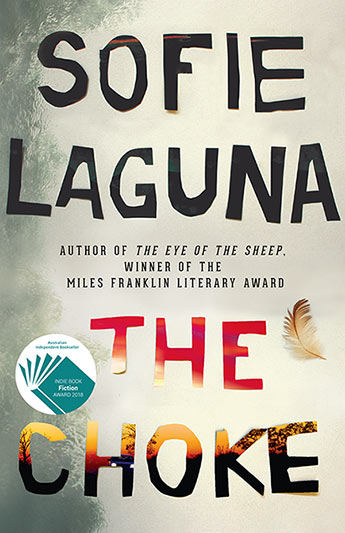 To say that the book is engaging is a gross understatement. The Accusation is the kind of story that you miss meals to finish, sneak read, and stay up late to keep going. It’s ultra-fast paced, and the speed of the plot belies just how good James’ writing is. James is a master of suspense, providing all sorts of subtle hints and details with legalistic precision.
To say that the book is engaging is a gross understatement. The Accusation is the kind of story that you miss meals to finish, sneak read, and stay up late to keep going. It’s ultra-fast paced, and the speed of the plot belies just how good James’ writing is. James is a master of suspense, providing all sorts of subtle hints and details with legalistic precision.
Tag: Australian fiction
An interview with Nigel Featherstone
 Nigel Featherstone is an Australian writer who has been published widely. His works include the story collection Joy (2000), his debut novel Remnants (2005), and The Beach Volcano (2014), which is the third in a series of novellas. He wrote the libretto for The Weight of Light, a contemporary song cycle that had its world premiere in 2018. He has held residencies at Varuna (Blue Mountains), Bundanon (Shoalhaven River), and UNSW Canberra at the Australian Defence Force Academy. In this detailed and wide-ranging interview, Nigel talks about his new book Bodies of Men.
Nigel Featherstone is an Australian writer who has been published widely. His works include the story collection Joy (2000), his debut novel Remnants (2005), and The Beach Volcano (2014), which is the third in a series of novellas. He wrote the libretto for The Weight of Light, a contemporary song cycle that had its world premiere in 2018. He has held residencies at Varuna (Blue Mountains), Bundanon (Shoalhaven River), and UNSW Canberra at the Australian Defence Force Academy. In this detailed and wide-ranging interview, Nigel talks about his new book Bodies of Men.
A review of Cedar Valley by Holly Throsby
 The life of the town centres around the pub, and the way in which the death provides a source for gossip, intrigue and transformation, but also in some respect brings the town together to support one another is charming. Cedar Valley is immensely readable and progresses in ways that are unpredictable but also smooth and natural.
The life of the town centres around the pub, and the way in which the death provides a source for gossip, intrigue and transformation, but also in some respect brings the town together to support one another is charming. Cedar Valley is immensely readable and progresses in ways that are unpredictable but also smooth and natural.
A review of Beneath the Mother Tree by D M Cameron
 Cameron’s first novel is not your usual mystery/love story. For one thing, her book has seventy-nine mosquitoes (but no sand-flies or ticks) squashed between the pages and they certainly give this story atmosphere. In fact there are experiments with mosquitoes, mosquitoes in jars and cages; yes so many hungry bloodsuckers and all just a figurative screen door away from biting you.
Cameron’s first novel is not your usual mystery/love story. For one thing, her book has seventy-nine mosquitoes (but no sand-flies or ticks) squashed between the pages and they certainly give this story atmosphere. In fact there are experiments with mosquitoes, mosquitoes in jars and cages; yes so many hungry bloodsuckers and all just a figurative screen door away from biting you.
A review of Little Gods by Jenny Ackland
 Ackland handles these themes carefully and subtly – never overstating or diagnosing Thistle or Audra, or giving us too many answers in the mystery, but treating all of the characters with a kind of tender acceptance that is unconditional. Mysteries remain. Time moves forward. Memory is entirely unreliable, but the clues it leaves us are all we have. Little Gods is a poetic book full of beauty, loss, and resilience, exploring what remains in our lives as we move past our pivotal transitions and crises.
Ackland handles these themes carefully and subtly – never overstating or diagnosing Thistle or Audra, or giving us too many answers in the mystery, but treating all of the characters with a kind of tender acceptance that is unconditional. Mysteries remain. Time moves forward. Memory is entirely unreliable, but the clues it leaves us are all we have. Little Gods is a poetic book full of beauty, loss, and resilience, exploring what remains in our lives as we move past our pivotal transitions and crises.
A review of the Lost Flowers of Alice Hart by Holly Ringland
 There is a kind of magic that is woven through the book, primarily from the language of flowers that works in conjunction with the semantical story but has its own silent meaning. Flannel flowers mean “what is lost is found”, Sturt’s Desert Peas, which are integral to the plot, mean “Have courage, take heart”, and Foxtails mean “Blood of my blood”. These flowers become Alice’s language when words fail her.
There is a kind of magic that is woven through the book, primarily from the language of flowers that works in conjunction with the semantical story but has its own silent meaning. Flannel flowers mean “what is lost is found”, Sturt’s Desert Peas, which are integral to the plot, mean “Have courage, take heart”, and Foxtails mean “Blood of my blood”. These flowers become Alice’s language when words fail her.
A review of Plane Tree Drive by Lynette Washington
 Lynette Washington is s-o-o-o-o-o good at this. She first prepares you with just the necessary brush strokes and then really delivers. All so clever, so unexpected, so unique and the more I read, the more I want. This is addictive reading at its best.
Lynette Washington is s-o-o-o-o-o good at this. She first prepares you with just the necessary brush strokes and then really delivers. All so clever, so unexpected, so unique and the more I read, the more I want. This is addictive reading at its best.
A review of Shriek: an absurd novel by Davide A Cottone
 Perhaps the cover says it all? Yes, you can begin to judge this particular book by its cover because inside and throughout all those white pages a hurricane is at work endeavouring to yank everything of life’s rationalizations into shards of disbelief.
Perhaps the cover says it all? Yes, you can begin to judge this particular book by its cover because inside and throughout all those white pages a hurricane is at work endeavouring to yank everything of life’s rationalizations into shards of disbelief.
A review of The Choke by Sofie Laguna
 As has become something of a trademark for Laguna, Justine’s voice forms the narrative backdrop for the book. It’s an extraordinary combination of naïve, descriptive, and poetically dense, driving the reader through a story often harrowing and dark, but always with a sense of discovery.
As has become something of a trademark for Laguna, Justine’s voice forms the narrative backdrop for the book. It’s an extraordinary combination of naïve, descriptive, and poetically dense, driving the reader through a story often harrowing and dark, but always with a sense of discovery.
Interview with Mark Brandi
 Wimmera is a patently Australian tour de force, following two inseparable youths, Ben and Fab and the hardships their mateship endures slipping from childhood into adulthood in the titular country town, a familiar coming-of-age story that takes a sudden, tragic turn, forever altering both their lives and their attachment to one another.
Wimmera is a patently Australian tour de force, following two inseparable youths, Ben and Fab and the hardships their mateship endures slipping from childhood into adulthood in the titular country town, a familiar coming-of-age story that takes a sudden, tragic turn, forever altering both their lives and their attachment to one another.